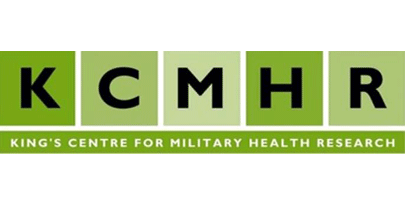The Importance of Social Support for Combat-Exposed Military Personnel: Insights from a Systematic Review and Meta-Analysis
Humans are social beings. Throughout life, we form relationships with others and naturally thrive when we feel supported by our circle. General population studies have highlighted the importance of perceived social support, defined as “an individual's belief that they are cared for by their family and friends”, for enhancing health and recovery from trauma.
Combat deployment during the Iraq and Afghanistan conflicts exposed military personnel to potentially traumatic events that can have lasting impacts on their health and wellbeing. Perceived social support may help to reduce negative outcomes following deployment. A systematic review and meta-analysis explored how much social support these individuals perceived, how it varied based on their mental and physical health, and what other factors were linked to perceived social support.
Key Findings
Included Studies
This review synthesised findings from 35 studies involving 19,073 participants. Overall, 31 studies were conducted in the United States (US), while none were performed in the United Kingdom (UK). Most studies used the Deployment Risk and Resilience Inventory (DRRI), a questionnaire measuring post-deployment social support. This included statements such as “my family members or friends make me feel better when I am down” and “I can go to family members or friends when I need good advice” with potential answers ranging from strongly disagree to strongly agree.
Levels of Perceived Social Support
The meta-analysis found a moderate to high level of perceived social support among participants (pooled mean DRRI score of 54.40, total score ranging from 15 to 75). Those with amputation injuries reported the highest DRRI scores (59.10), however, those with post-traumatic stress disorder (PTSD) exhibited significantly lower scores (44.40), highlighting the need for enhanced support systems within this subgroup.
Associated Factors
The review also identified several factors which were associated with perceived social support:
- Risk Factors: Having PTSD, depression, or anxiety was frequently linked to lower perceived social support scores.
- Protective Factors: Post-traumatic growth and strong unit support were associated with higher post-deployment perceived social support, underscoring the importance of high-quality relationships for wellbeing.
Research Gaps
While half of the included studies examined the relationship between perceived social support and mental health, only a few focused on physical health and other military factors such as rank and combat exposure. This indicates a gap in understanding the full spectrum of perceived social support. Given the predominance of US based studies, future research should explore perceived social support in military populations from other nations.
Implications for Policy and Practice
The findings underscore the importance of psychosocial interventions and educational programmes to enhance perceived social support among serving and ex-serving US military personnel. Those involved in military and veteran support services should consider incorporating strategies to enhance individuals' perceptions of feeling supported by their social networks, especially for those who experience PTSD. By fostering strong social support systems, we can better assist military personnel and veterans in optimising their health and wellbeing.
Take Home Message
Perceived social support plays a vital role in the mental health and wellbeing of serving and ex-serving military personnel who deployed on a combat operation during the Iraq and Afghanistan conflicts. Expanding research beyond the US will help to create a more inclusive understanding of how best to support serving, and ex-serving military personnel worldwide.
To access the full paper please follow this link: https://link.springer.com/article/10.1007/s00127-024-02685-3
